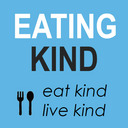I love the concept of Meatless Monday and all the benefits that come from skipping meat just one day a week.
If reducing risks of cancer, heart disease, diabetes and obesity (list does go on) weren’t enough, we’d also decrease our greenhouse gas emissions and minimize water usage.
That got me thinking, so here’s some additional research on what would happen if every American for just one day went vegetarian. The results are pretty amazing! We would:
- Eliminate 33 tons of antibiotics1
- Stop 3 million tons of soil erosion and $70 million in resulting damages.1
- Preserve over 3 million acres of land1
- Save 70 million gallons of gas.1
And of course don’t forget about the animals! If we skipped one meat meal, about one billion animals would be spared the suffering that occurs with intensive confinement operations.
Having named the many, many benefits of decreasing our meat consumption, I don’t understand why majority of us, myself included, choose not to. According to the NY Times, “Americans eat about eight ounces a day, roughly twice the global average. At about 5 percent of the world’s population, we “process” (that is, grow and kill) nearly 10 billion animals a year, more than 15 percent of the world’s total.” Those numbers seem staggering!
To make sense of my own behavior I always start with two questions 1) why did I start doing it and 2) why do I continue to do it.
When I apply this methodology to our chronic meat eating, the first “why” seems to range from internal drivers like pleasure and habit to external ones like convenience, price, and accessibility. While understanding these reasons is important and interesting from a social and cultural perspective, it doesn’t provide insight into how to change behavior.
That’s where the second question comes in. Why do we continue to overindulge in meat when it’s not good for us or our planet? Our choices tend to be measured against a benefit/harm yardstick – and if benefits (perceived or real) from maintaining status quo are greater than from a new behavior, (or inversely, if the harm associated with new behavior is greater than from the old behavior) we’ll continue right along doing what we’ve always done.
This is where things get confusing. Effects from hanging up our carnivore hat for just one day are all positive. No matter how you look it. Eating less meat is more beneficial than not: we feel better, we look better, fewer animals are slaughtered. Eating more meat is more harmful than not: higher risk of various diseases, weight gain, the negative environmental impact, the list goes on and on. Logic and common sense tell us that our human survivalist instinct will or should compel us to embrace a lifestyle that most benefits us and our future generations. So why don’t we?
My go-to culprit is awareness, and I think it certainly applies here. I believe a large percentage of population still doesn’t realize the extent of the damage that our meat-driven diet is having on ourselves or our environment. But better education and awareness = better choices. I hope that policy changes related to organic labeling, stricter laws for nutritional labeling on packaging and menus and increased interested in sustainable food production will continue to drive up that awareness.
A new offender is addiction. It may sound melodramatic to call our overconsumption an addiction. But is it really? With substance and drug abuse, users engage in behaviors they know to be harmful, their usage increases over time and they refuse to give up their drug of choice, even when they know their lifestyle is killing them. Sound familiar?
And just like with addiction, the first step to recovery is admitting there is a problem. We need to acknowledge that our current way of living and eating is slowly killing us, our families, our friends, human and non-human, and our planet. The good news is that even small changes make a difference and are as easy as saying ‘hold the meat, pass the veggies’ next time we’re at our local grocery store.
Sources:
3. Massachusetts Society for the Prevention of Cruelty to Animals
